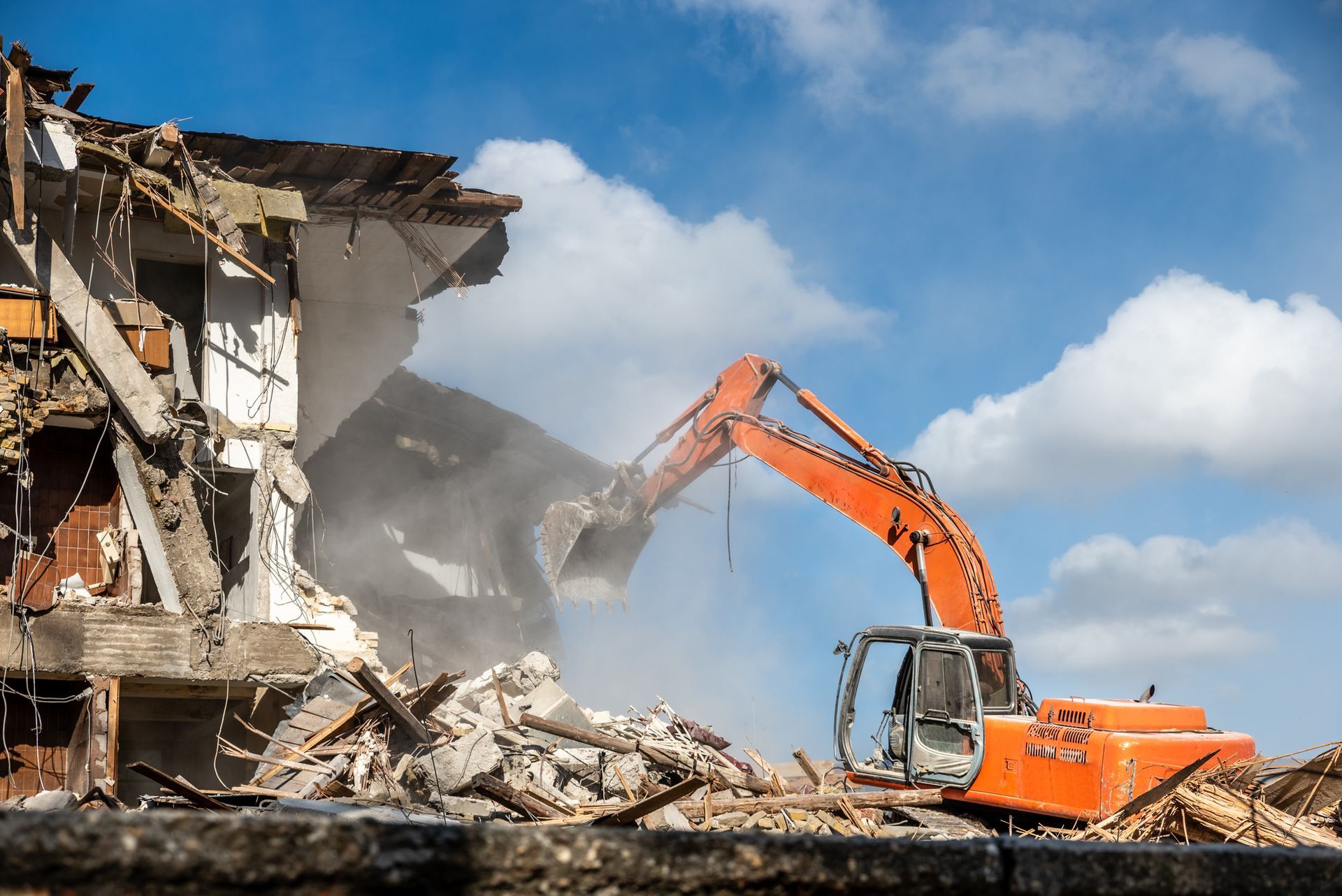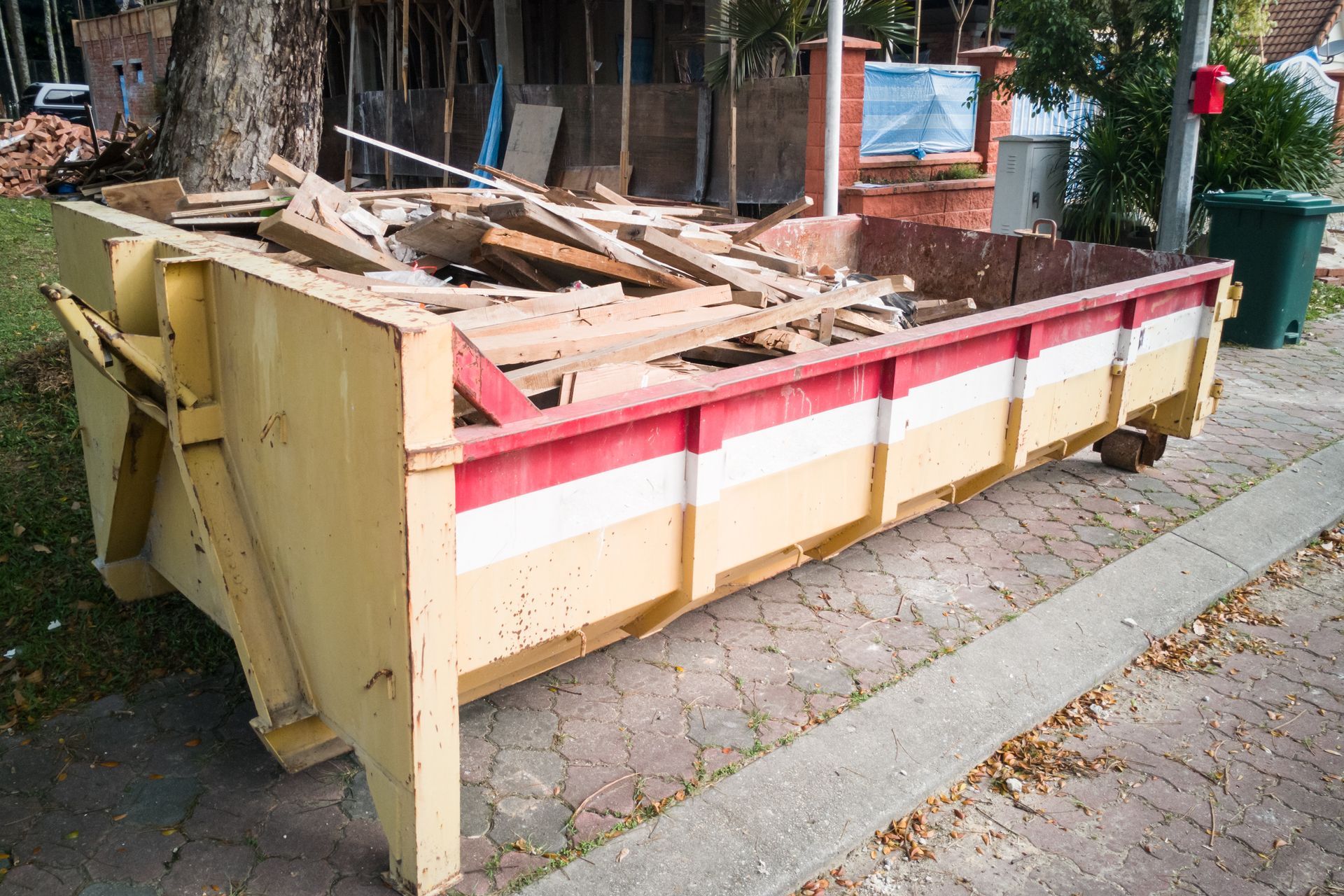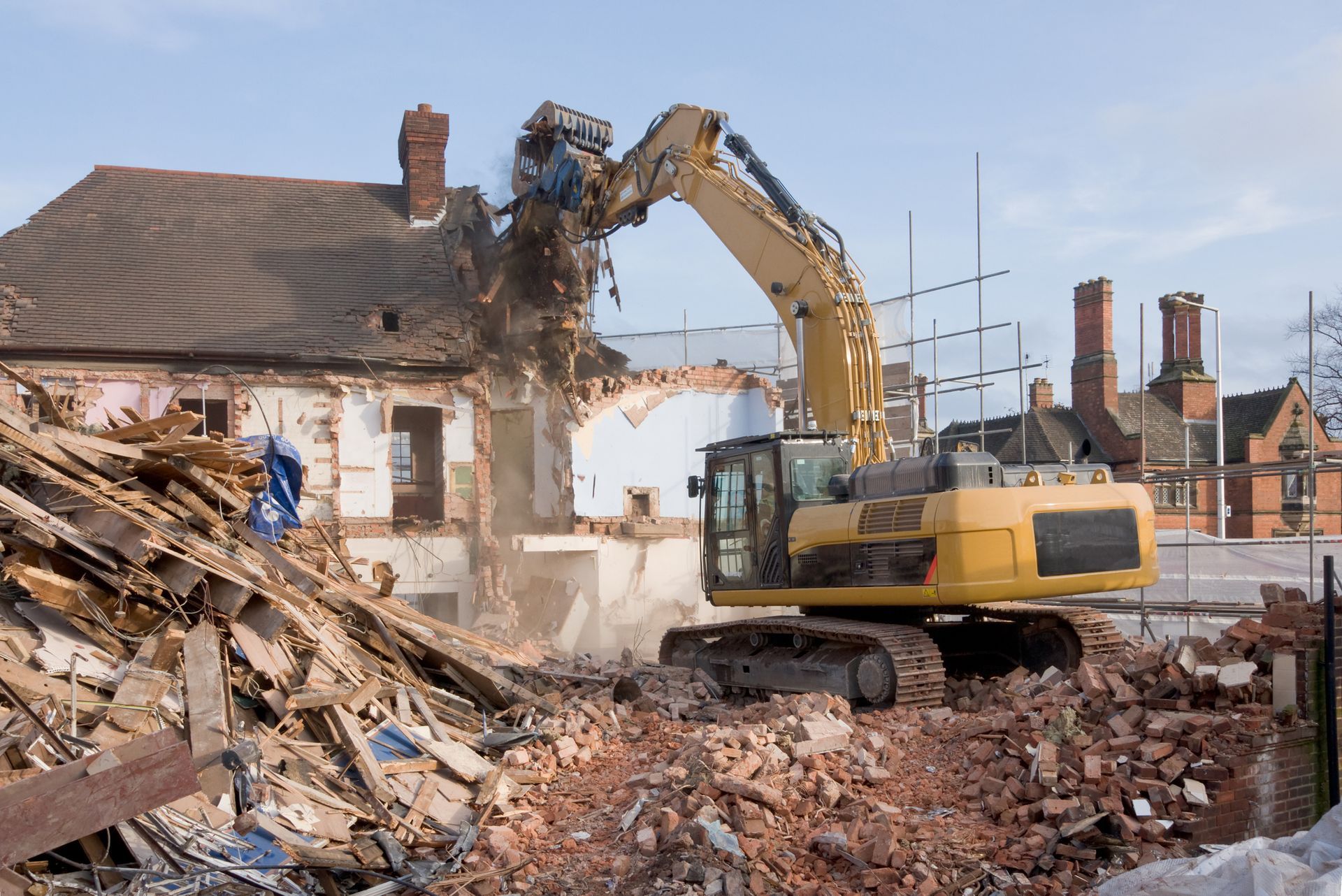7 Tips for Hiring a Demolition Contractor in Northampton, MA
When preparing for a demolition project, hiring the right demolition contractor in Northampton, MA, is one of the most critical steps. Whether you're tearing down an old home to make way for new construction or just removing a structure that no longer serves its purpose, demolition is a complex process that involves careful planning, compliance with local laws, and an experienced team.
Important Things to Know Before Hiring a Demolition Contractor in Northampton, MA
1. Choosing the Right Demolition Contractor
Not all demolition contractors are created equal. A reliable demolition contractor should be:
- Fully licensed and insured to operate in the state and city.
- Experienced with Northampton-specific codes and building ordinances.
- Proficient in both residential and commercial demolitions.
When evaluating a contractor, ask for:
- Project references or a visual portfolio.
- Proof of certifications and licenses.
- A detailed breakdown of included services (such as permitting, clean-up, and site grading).
Working with a full-service contractor ensures the process runs smoothly from start to finish.
2. Understanding Local Demolition Permits
Before demolition begins, a permit must be secured through the City of Northampton. The permitting process involves:
- Submitting site plans to the local building department.
- Providing documentation of utility shut-offs.
- Possibly arranging for an asbestos inspection or environmental clearance.
A contractor should manage this paperwork for you and confirm that all regulatory boxes are checked. Skipping the permitting process could result in fines or project shutdowns.
3. Utility Shut-Offs Must Be Completed in Advance
One of the most important safety measures before demolition is shutting off all utility services. Active gas, water, or electrical lines can pose life-threatening dangers. A demolition contractor should coordinate disconnections directly with local providers.
Here are the key utilities that need to be shut off:
- Electricity: Prevents electrocution and fire.
- Gas: Reduces the risk of explosion.
- Water: Avoids flooding or property damage.
- Sewer: Eliminates risk of contamination or odor issues.
It’s best to start this process early, as utility companies may take several days to process requests. Contractors must also ensure that lines are safely capped and verified.
4. Review Property Lines and Neighbor Notifications
Accidental encroachment on your neighbor’s land during demolition can lead to disputes or legal action. Before starting, ensure:
- Accurate land survey and boundary verification.
- Open communication with adjacent property owners.
- Proper fencing or signage to designate work areas.
Taking these steps shows respect for neighboring properties and avoids complications that could delay your project.
One aspect that’s often overlooked is how demolition equipment will access your site. Tight spaces, narrow driveways, or overgrown landscapes can restrict the movement of heavy machinery. Your contractor will need to assess the site in advance to plan the best entry and exit points for trucks and excavators. Addressing these logistics early on ensures fewer delays and helps maintain your project timeline.
5. Environmental Considerations and Hazardous Materials
Older buildings, especially those built before 1980, may contain hazardous substances such as:
- Asbestos.
- Lead-based paint.
- Black mold.
- PCBs and other contaminants.
A responsible contractor will conduct an Environmental Site Assessment (ESA) and arrange for certified removal specialists if hazardous materials are found. Materials must be disposed of according to state and federal EPA guidelines to avoid penalties and health risks.
Many materials found in older structures, like hardwood floors, copper piping, brick, and vintage fixtures can often be salvaged and reused. Recycling not only reduces landfill waste but may also offer cost savings or tax benefits. Speak to your demolition contractor about their recycling and salvage process. It's a great way to make your project more eco-friendly and responsible.
6. What to Expect From a Full-Service Demolition Contractor
A full-service demolition provider simplifies every step of the process, ensuring you don’t need to coordinate multiple vendors. Services typically include:
- Interior Demolition: Safe removal of walls, fixtures, and flooring.
- Exterior Demolition: Driveways, patios, and external structures.
- Selective Demolition: Only specific parts of a structure are removed.
- Total Demolition: Complete teardown of entire buildings or structures.
- Site Clean-Up: Post-demolition debris removal and surface clearing.

7. Key Pre-Demolition Checklist Items
Before the demolition begins, there are several tasks to complete. Here are some key steps homeowners should take to ensure everything runs smoothly:
- Notify your neighbors about the upcoming demolition.
- Secure your property and remove valuable or hazardous items.
- Schedule utility shut-offs and inspections.
- Confirm all permits have been approved.
- Take photographs of the site for future reference.
- Discuss debris removal and site clean-up with your contractor.
These steps ensure your project begins on a solid foundation and avoids unnecessary hiccups.
Contact an Expert Demolition Contractor in Northampton, MA
Demolition doesn’t have to be stressful when you hire the right team; it’s a seamless process from start to finish. Dukes LLC is your trusted partner for safe, efficient demolition services. Our experienced crew understands the unique landscape and building codes of Northampton, ensuring that your project is executed flawlessly. Let us help you tear down the old to make room for the new. Call (413) 535-9808 or send us a message today to speak with a reliable demolition expert.













